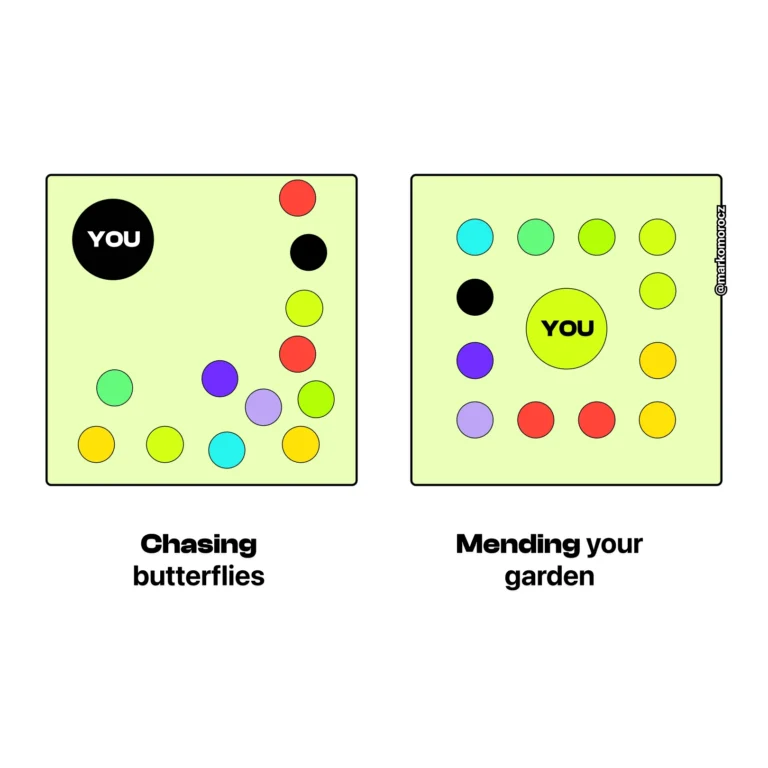Stop Fearing Death—Start Fearing Lack Of Presence
You fear death. The end. No longer being here.
But here’s the brutal truth—most of your life is spent not being here anyway.

You’re physically present. Mentally? You’re a ghost.
In meetings, your body sits while your mind wanders. At dinner, you nod while thinking about tomorrow. With your kids, you’re there but lost in work.
You’re alive but not living. Breathing but not being.
The True Definition of Wasted Time
Wasted time isn’t:
- Not earning enough
- Not achieving goals
- Not accumulating stuff
Wasted time = Being somewhere without actually being there.
It’s the gap between your physical reality and your mental attention. That gap? It’s where your life disappears.
Worry about tomorrow steals today. Regret about yesterday erases now. Fear about what might happen blinds you to what is happening.
You’re not living 80+ years. You’re living the same distracted day thousands of times.
The Presence Paradox
Here’s what’s insane: While fearing death, you practice it daily.
Mental absence is a form of death. It’s choosing not to experience the life you have while having it.
You dread no longer having experiences while simultaneously refusing to fully experience what you already have.
Make sense? Of course not. It’s madness.
The Immersion Principle
Time immersed is time lived. Everything else is just waiting to die.
I learned this after years of chasing more—more money, more status, more stuff. Always living in the next moment, the next achievement, the next level.
My mind was always somewhere else. Always planning. Always worrying. Always regretting.
Then I realized: I wasn’t actually experiencing any of it.
I was alive on paper but dead in practice.
The Skill Most Never Master
Presence isn’t a warm fuzzy concept. It’s a combat skill.
It’s mental discipline in a world engineered to fragment your attention.
Every notification. Every worry about the future. Every regret about the past. Every comparison to others.
They all pull you from now. And now is all you ever have.
The 80/20 of Mental Presence
Want to reclaim your existence? Start here:
- Identify Absence Triggers: Track when your mind leaves your body.
- What pulls you away? Work stress? Relationship worries? Future fears?
- Create Presence Anchors: Physical cues that snap you back to now:
- Focused breathing (3 seconds in, 6 seconds out)
- Physical sensation focus (feet on ground, hands touching)
- Environment scanning (5 things you see, 4 you feel, 3 you hear)
- Build Single-Tasking Power: Multi-tasking is just multi-failing at being present.
- One conversation at a time
- One task at a time
- One experience at a time
- Presence Before Purpose: All the achievement in the world means nothing if you’re not there to experience it. Purpose without presence is just postponed living.
The Stakes Are Higher Than You Think
This isn’t philosophical fluff. It’s practical combat.
Research shows the average person spends 47% of waking hours thinking about something other than what they’re doing.1
That’s not 47% of your life you’re missing. That’s 47% of your life you’re throwing away.
While worrying about death someday, you’re practicing it every day.
The Only Time That Exists
Tomorrow doesn’t exist. Yesterday is gone. Now is all there is.
It’s not about ignoring the future or forgetting the past. It’s about recognizing that you can only ever act, feel, experience, or live in this moment.
The future is created by a series of present moments. Miss those, and you miss everything.
Your Next Move
Next time you feel your mind drifting from your body, ask yourself:
“If this was my last day alive, would I want to spend it thinking about something else?”
Time isn’t wasted when you’re fully immersed—even in pain, even in struggle, even in boredom.
Time is only wasted when you’re not there for it.
Death isn’t the enemy. Mental absence is.
You can fear death later. For now, fear the death you’re practicing every day when your mind leaves without you.
References
- Killingsworth, M. A., & Gilbert, D. T. (2010). A wandering mind is an unhappy mind. Science, 330(6006), 932-932. ↩︎





